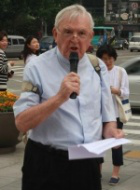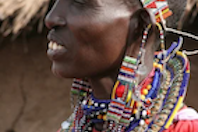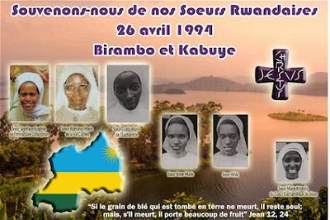South Korea: Valuing people with disabilities

Fr Noel O'Neil
By chance, I first encountered the Emmaus organization through meeting its key founder, Irish Columban Father Noel O’Neill, in the early 1980s at a course I was teaching In Massachusetts based upon what was called at the time “normalization” theory. This theory had been developed initially in Scandinavia and subsequently spread worldwide quite rapidly. The theory, in its early years, addressed the life circumstances of persons with intellectual disabilities and their largely devalued and dehumanized status in many societies. Later, through the writings of the now deceased Dr Wolf Wolfensberger, Professor Emeritus, of Syracuse University, the theory was expanded to have a more universal focus on the experiences of many other socially devalued groups in society both in contemporary and historical instances.
This was not an entirely new insight, as contemporaries of Wolfensberger, such as Jean Vanier, the founder of the L’Arche movement also was prominent and influential in his affirmation of the worth, gifts and inherent humanity of people with disabilities. He similarly emphasized the value of social integration, community and relationship as both catalysts for change and an opening of the hearts of people to formerly excluded persons. It was the need to promote and support the challenging journey from being unwanted, excluded and rejected to belonging, community and obtaining valued social roles that came into prominence by the late 1960s.
Father O’Neill’s search for ways forward for persons with intellectual disabilities in his adopted country of South Korea drew on the examples of these two men. South Korea was not a particularly hospitable country at the time towards the idea of better life conditions for people with disabilities, though this would change in time. The devastation of the Korean War followed by a laborious struggle to meet the many material needs of a burgeoning population rendered people with disabilities to be a comparatively low priority. Families were largely on their own in terms of supporting people with disabilities and hastily built custodial institutions were the best the state could manage at the time for those whose families could not manage. Even to this day, such institutions are still the dominant life option for many people with disabilities outside of their family home.
Emmaus was created with a vision to enable the person with a disability to flourish and experience the richness of life, community and the ongoing explorations of their own unique interests and potentials irrespective of the type or degree of the disability they lived with. In other words, Emmaus had a deep interest in seeing that people with disabilities could grow and develop and to taste life as fully and diversely as any other person. Even more radical for its time, Emmaus saw that people with disabilities and their families could indeed direct and shape their own lives and life priorities and should be supported to do so.
Almost from the outset, Father Noel O’Neill, following the example of Jean Vanier, also decided to share a home in Gwangju City with people with disabilities that he has continued to this day. This simple act of deeply personal life sharing highlights the falseness of the us/them/“otherness” of people with disabilities and instead substitutes a vision of an entirely shared rather than separate humanity. It also underlines the pointlessness of an over fixation on a given person’s impairments at the expense of the fullness of the person as an interesting and distinct human being who is likely capable of much, much more than we might allow for given our low expectations for people with disabilities.
What has grown from this seed of this vision of personal developmental potential and shared humanity has been a massive expansion within the lives of the individuals supported by Emmaus into every conceivable corner of community life in the city of Gwangju and elsewhere. This has included regular community employment, people having homes of their own, interests and lifestyles unique to them, marriage, participation in the arts and church liturgies, travel, friendships, family, multiple valued social roles, personal achievements of all kinds and so on. In other words, people have now obtained lives that much more closely mirror the lives of their fellow Koreans and help emphasize that they have taken their place within community rather than watching community life from institutions on the outside of community.
Emmaus has been an example of what good can come from not just seeing the intrinsic and sacred worth of all persons, but from acting in solidarity and support to explore, enrich and safeguard the potentials in each person’s life.
Hear Fr Noel O’Neill talk about his work at: www.youtube.com/watch?v=PQWRl6ytHrY
Michael J Kendrick is an independent international consultant in human services and community work.


















